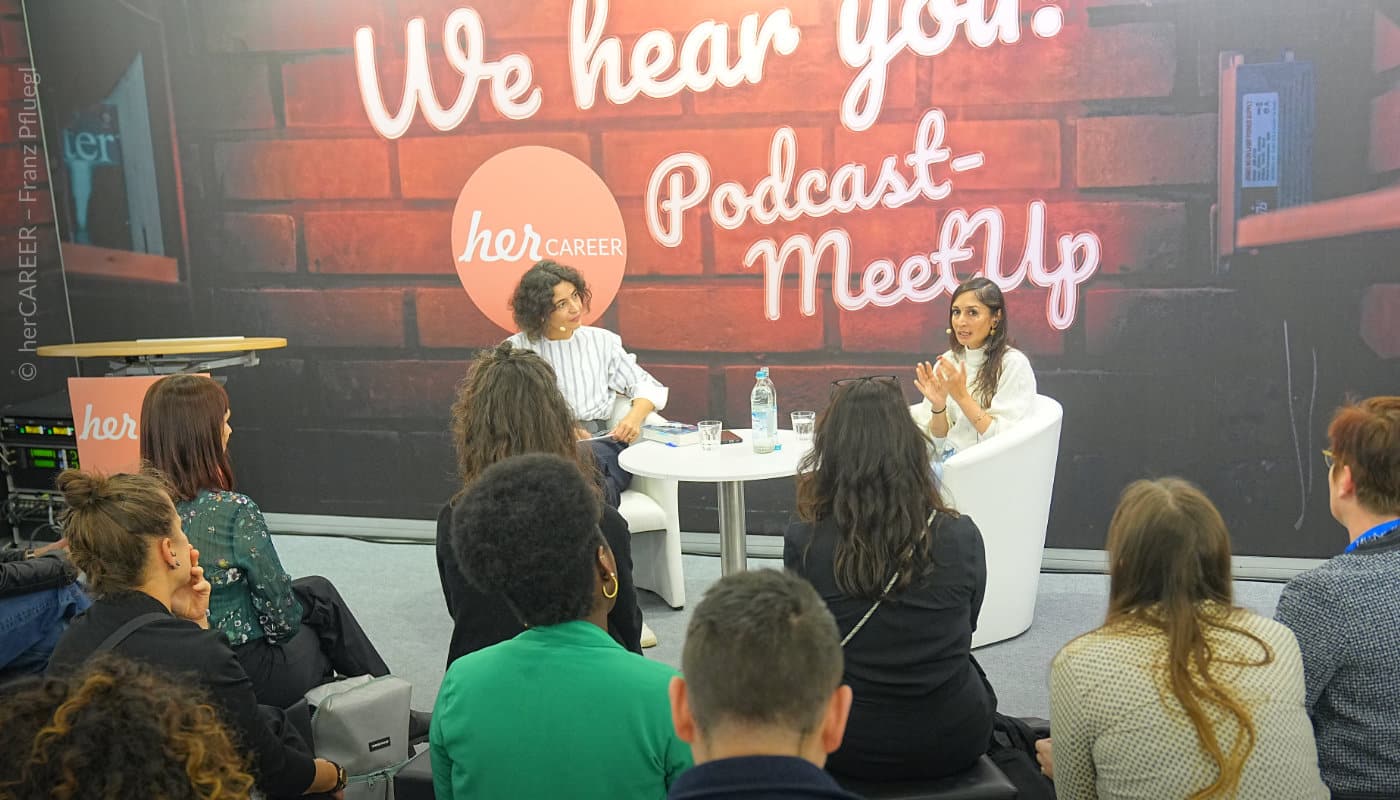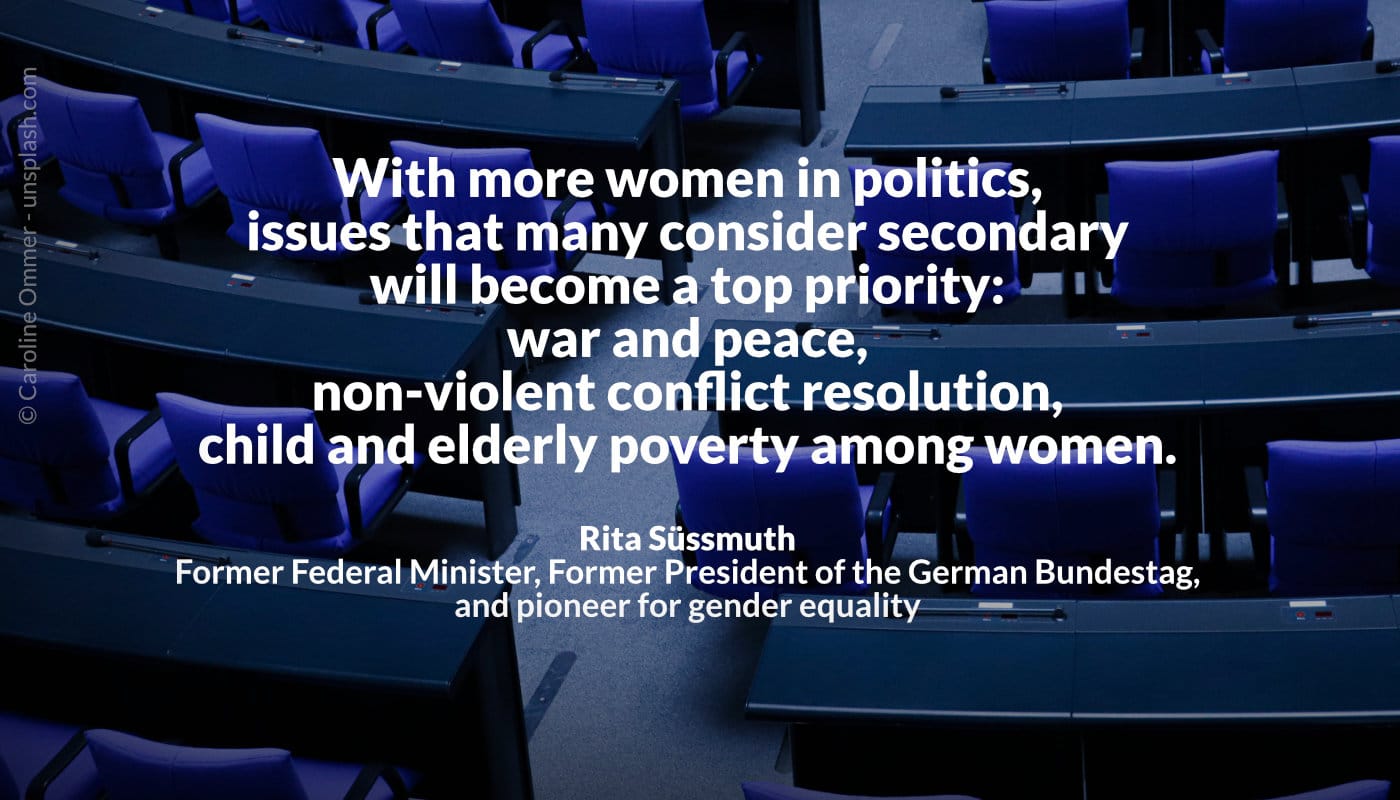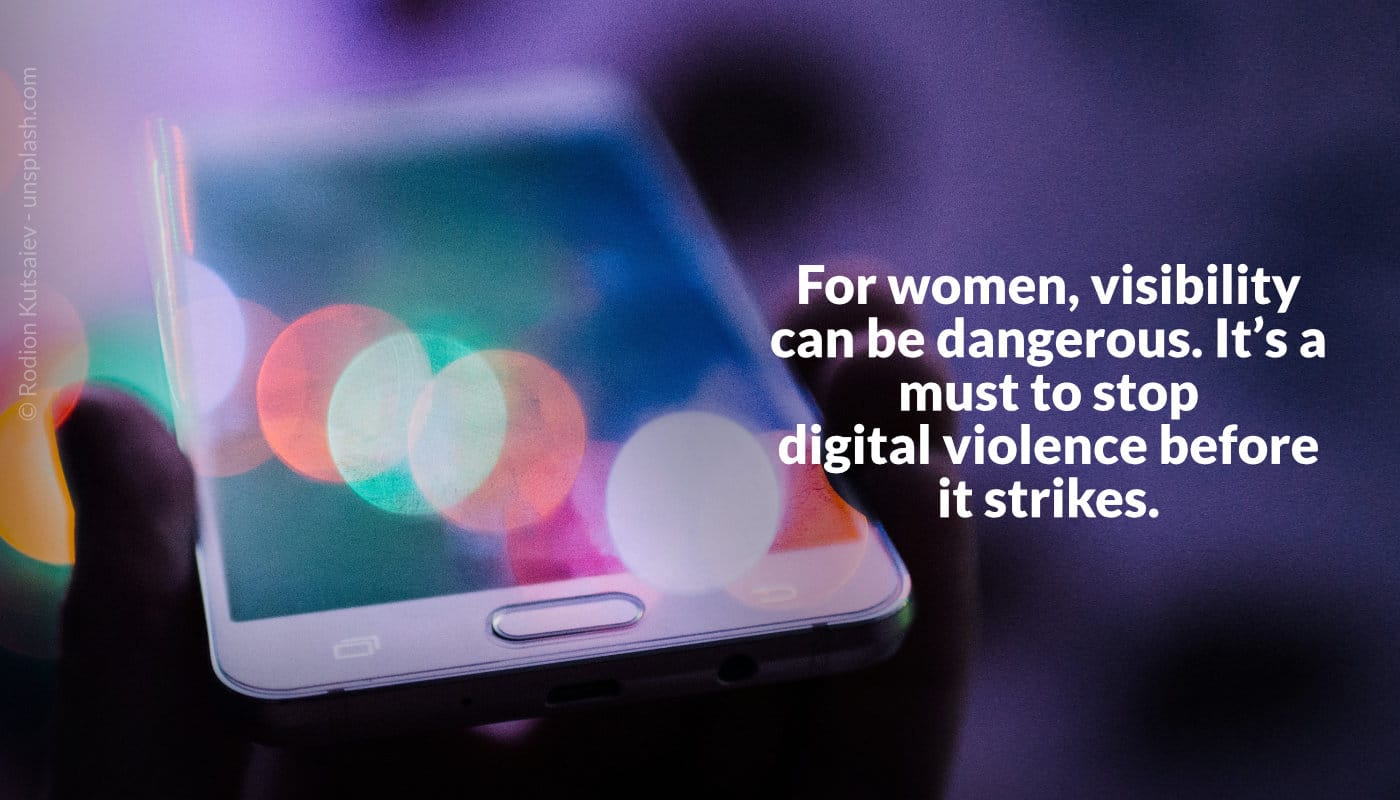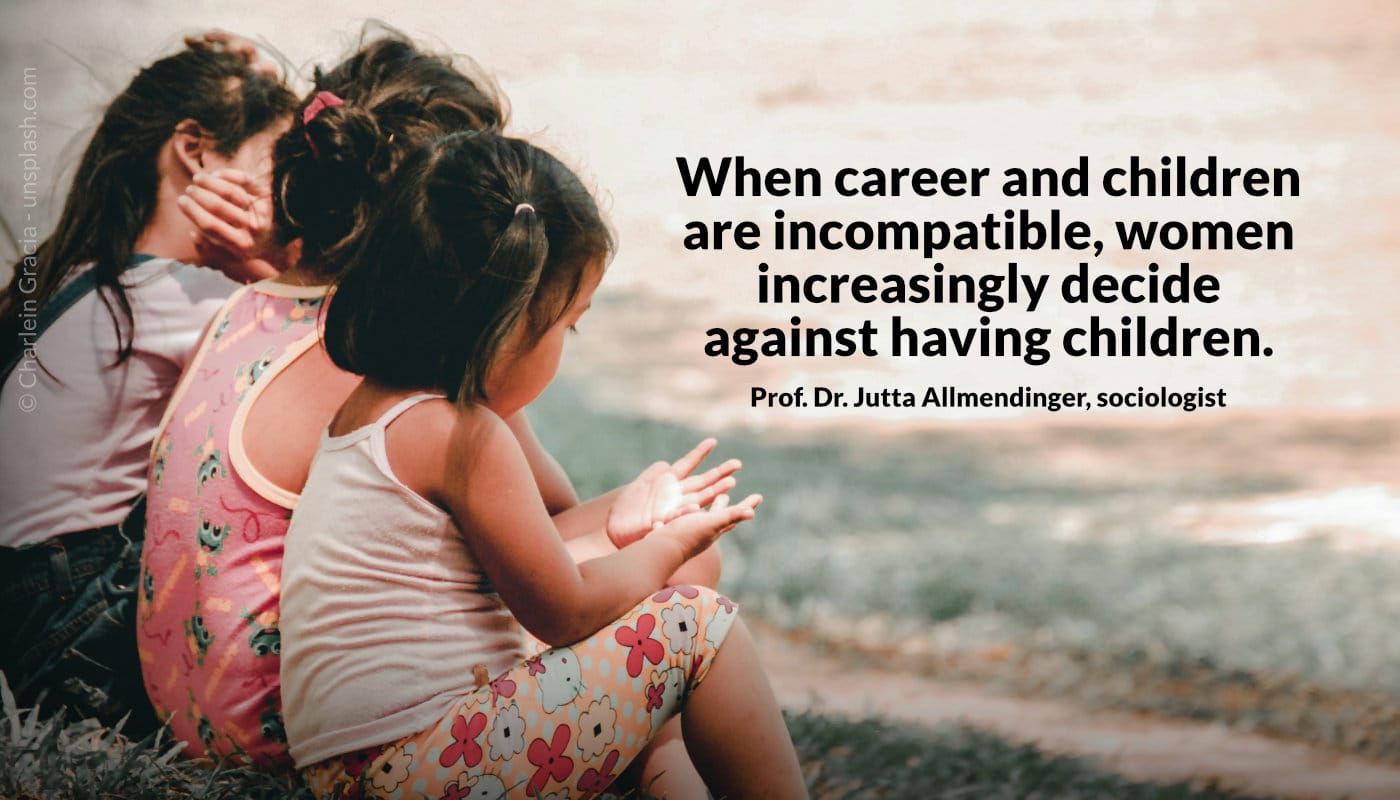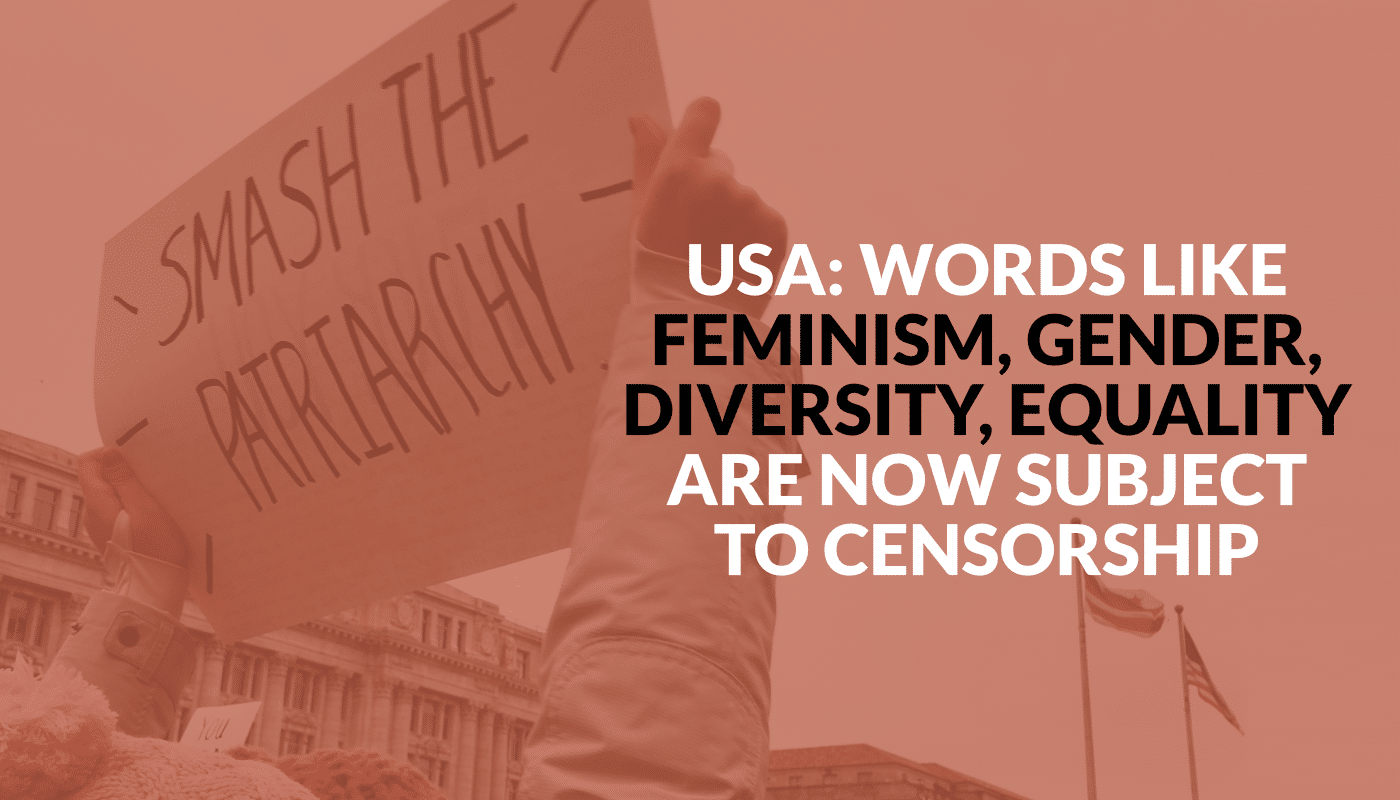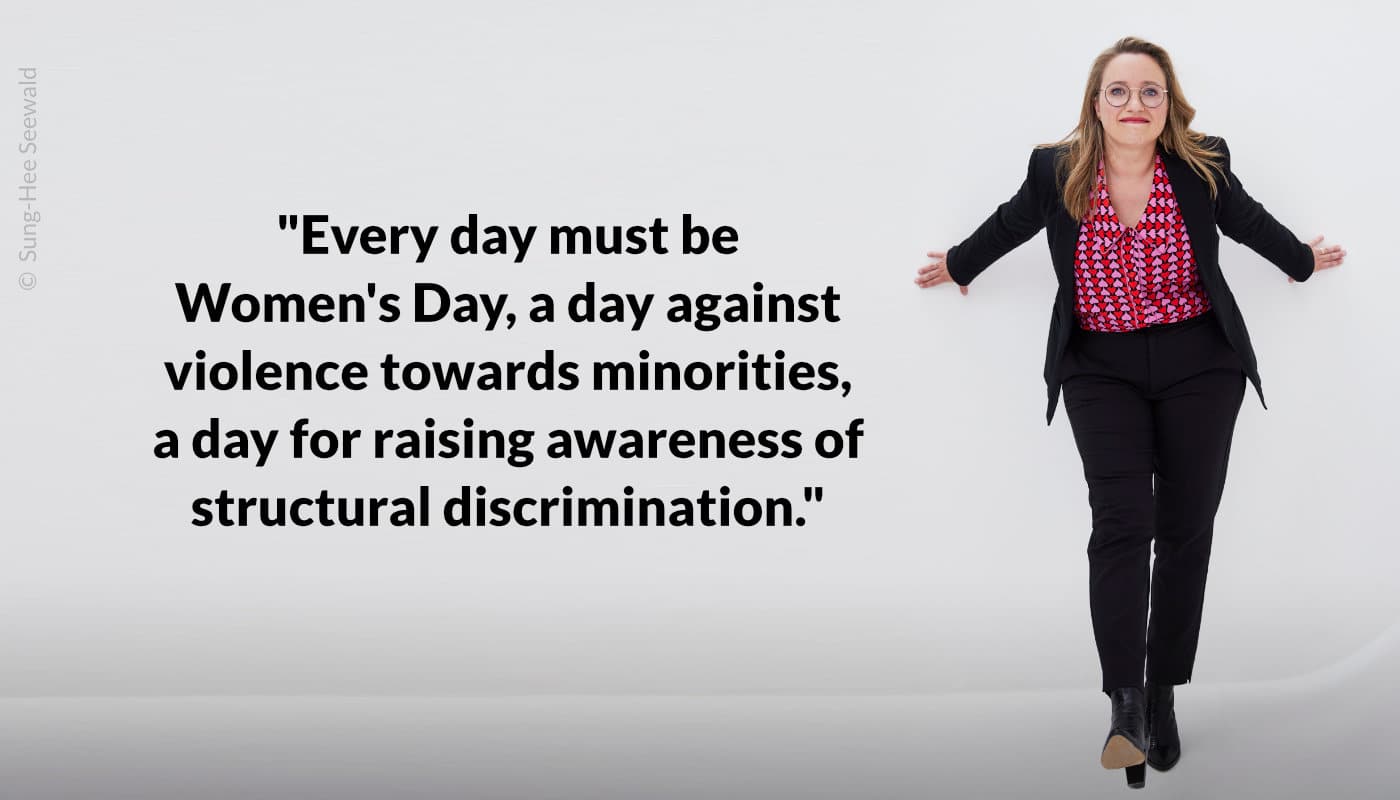“Verkehrte Narrative” (“Wrong Narratives”) is our podcast with political scientist and author Gilda Sahebi.
People tend to perceive events selectively. Behind this lie cognitive and social mechanisms that are deliberately exploited by populist actors. This makes it easy for the simplifications, half-truths, and falsehoods they intentionally spread to gain traction.
In its study “Populism as a Strategy: Mechanisms of Simplifications and False Statements,” the Hans Böckler Foundation writes:
“When people are confronted with information that contradicts their beliefs, they experience cognitive dissonance as an uncomfortable feeling. This discomfort often leads to strategies for reducing dissonance, such as ignoring or rationalizing contradictory information.”
In an interview with Kristina Appel for herCAREER, Gilda Sahebi states: “Every form of discrimination is based on a wrong narrative.” (available only in german language)
In her book “How We Teach Ourselves Racism,” she illustrates how we are all socialized with thought patterns and prejudices that lead to devaluation and exclusion. “The narrative of division is everywhere: we differentiate by gender, sexual identity and orientation, origin.” However, the author also emphasizes how we can become aware of these patterns and redirect our thinking.
She calls for more honesty. “As long as politicians deceive themselves and us, pretending we have no problem with sexualized violence, racism, ableism, and similar issues, nothing will change.” The same applies to the media and education.
Anna-Lena von Hodenberg on the “Wrong Narratives” that not only disrupt our peaceful coexistence but also endanger our democratic values.
Annahita Esmailzadeh writes on LinkedIn:
“Right now, we are outraged by symptoms but neglect the necessary engagement with the root causes. As a result, we get lost in ideological skirmishes instead of focusing on developing sustainable and viable solutions.”
She also highlights “how dangerous it is for social cohesion when populist rhetoric is used to win votes. Such division makes minorities, in particular, feel increasingly excluded and unwelcome. (…) We need to return to fact-based and respectful discourse.”
Kirsten Ludowig from Handelsblatt, co-initiator of the PULSE Women Economic Network, believes that we have lost the ability to compromise. She recalls that at Angela Merkel’s last EU summit in 2021, a colleague referred to her as a “compromise machine.” In her autobiography, Merkel writes:
“I tended to make compromises when the benefits outweighed the disadvantages by a ratio of 51 to 49. […] 100 to 0 makes me suspicious.” (A stark contrast to Donald Trump, who sees only winners and losers.)
Ludowig reflects:
“Finding what unites us – shouldn’t that be the goal everywhere? Whether in families, among friends, in the workplace, in Germany, or the world. If we cannot reach compromises, it divides us and endangers our cohesion. (…) In the end, the world is rarely just yes or no, black or white—it is mostly somewhere in between, a shade of gray …”
It is up to all of us to question exclusionary narratives, verify facts, listen to others with an open mind, and seek common ground. Only in this way can we preserve our democratic way of life!

Posted by Natascha Hoffner, Founder & CEO of herCAREER | Recipient of the FTAfelicitas Award from Femtec.Alumnae e.V. | LinkedIn Top Voice 2020 | Editor of the “Women of the Year” books published by Callwey Verlag
